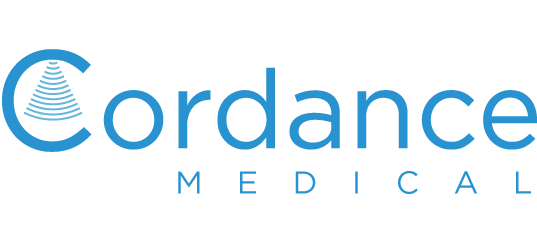Cordance Medical, a pioneering medical technology company focused on non-invasive brain treatments, is pleased to announce a new strategic agreement with Stanford Medicine, working with radiologist Dr. Raag Airan, Assistant Professor, and neurologist-psychiatrist Dr. Nolan Williams, Associate Professor, Stanford Medicine. This collaboration will combine Cordance’s breakthrough NeuroAccess™ device with Dr. Airan’s novel nanoparticle drug development to establish a new standard for precision medicine in neurology and psychiatry. Dr. Airan is also an Advisor with Cordance Medical.
The combined expertise of Cordance and the Airan and Williams Labs will see NeuroAccess utilized to deliver a novel application of drug-loaded nanoparticles, providing targeted drug delivery to the brain. This method enables focal noninvasive drug delivery with the Airan Lab’s pioneering technology of Ultrasonic Drug Uncaging, leveraging the capabilities of NeuroAccess beyond its original function of blood-brain barrier (BBB) opening.
“With this agreement, we’re taking a critical step forward in the field of precision neuropsychiatry,” said Ryan Dittamore, CEO of Cordance. “Our NeuroAccess platform, when paired with Dr. Airan’s novel nanoparticles, has the potential to revolutionize patient care by providing more precise control of neural activity. We’re thrilled to collaborate with the Airan and Williams Labs, blending our technological advancements to create a future where neurological and psychiatric treatment is both safer and more effective.”
The NeuroAccess device will be used to ‘uncage’ drug-loaded nanoparticles within targeted areas of the brain. This unique approach facilitates the diffusion of the drug payload across an intact BBB, promising targeted and highly-localized therapy, while minimizing side effects by limiting drug action outside of the region of interest, with potential applications in treating a wide range of neurologic and neuropsychiatric disorders.
As the PIs of this clinical study Drs. Airan and Williams at Stanford Medicine said, “Our labs have made significant strides in developing ultrasonic drug uncaging using drug-loaded nanoparticles that can be triggered using short, low-intensity ultrasound pulses. We believe Cordance’s NeuroAccess device will be an important tool for enabling targeted drug delivery to the brain using our nanoparticles by applying focused ultrasound precisely where the uncaging event is needed. This collaboration marks a significant milestone in our journey towards establishing a new, non-invasive treatment paradigm through precision neuro-pharmacology.”
The first-in-human trial of this technology enabled by this agreement will employ a nanoparticle-bound version of ketamine, aiming to demonstrate the effectiveness of this approach in a clinical setting for patients with chronic pain.
“It’s truly invigorating to participate in this transformative research,” shares Dr. Ramamurthy, CTO and co-founder of Cordance Medical. “With this study, we are set to demonstrate the expansive applicability of NeuroAccess technology. From neuro-oncology to neuropsychiatry, we’re pushing boundaries to make a meaningful impact on patient care.”
About Cordance Medical:
Cordance Medical is a healthcare technology company dedicated to revolutionizing patient care with its innovative NeuroAccess platform. Its cutting-edge technology facilitates the non-invasive opening of the BBB, enhancing drug delivery, and enabling liquid biopsy for brain tumors. The company is driven by a mission to make these complex healthcare procedures accessible to all patients. For more information, please visit www.cordancemedical.com.
Learn more about Stanford’s Noninvasive Neurointerventions Lab:
The Noninvasive Neurointerventions Lab, headed by Dr. Raag Airan, Assistant Professor of Radiology at Stanford University, specializes in the development of novel noninvasive interventions to address diseases of the nervous system, including the development of ultrasound-sensitive nanoparticles capable of carrying various drugs of neuropsychiatric interest. They are known for their innovative work in the field of ultrasonic drug uncaging, a novel approach that could redefine how neurologic and psychiatric disorders are treated.
Learn more about Stanford’s Brain Stimulation Lab:
The Brain Stimulation Lab, headed by Dr. Nolan Williams has a focus on the development of novel therapeutics. The BSL’s first innovation, SAINT (Stanford Accelerated Intelligent Neuromodulation Therapy), has FDA Breakthrough Status and FDA Clearance for Treatment Resistant Depression. Dr. Williams has worked alongside a team at Stanford to develop candidate predictive neuroimaging-based biomarkers of treatment efficacy.
